How to Make Your Goals Doable and RewardingScience has proven that micro-habits are much more effective than big, hairy goals. And yet, when another New Year’s rolls around, the first thing we do is make a huge list of resolutions we want to keep. However, using micro-habits to make changes in your life sets you up for success because of the consistent progress you see. Sticking to our New Year’s goals this year doesn’t need to be hard or scary. Try these four easy strategies to make your goals for the new year doable and rewarding. Choose One ThingChoose One Thing--one reason we rarely accomplish any of our New Year’s resolutions is because we make a lot of them and they are all massive. So, this year, instead of a laundry list of changes, decide which goal is the most significant in your life. For example, since our health impacts everything we do, you may decide that getting healthier is the one area which deserves your focus. Break it DownBreak It Down—another way we make things hard for ourselves is by stating our goal as something ambiguous and undefined. Like in the example above, “Get healthy” as a goal is sure to fail. Why? You'll fail because the goal is too vague. Instead, you may want to start a list of all the steps you could take to become healthier. You could include things like drinking eight glasses of water per day, exercising for twenty minutes each day, eating a salad for lunch five days a week, drinking only two cups of coffee or soda per day, and getting at least eight hours of sleep per day. Then, choose just one of those to start. Starting with the easiest one is okay. Once that becomes a habit, you can move on to the next one on the list. Another important aspect is to make the action toward your goal doable. If drinking eight glasses of water each day sounds impossible, how about drinking two? Once you’ve reached two glasses each day, you can step it up to three. That’s how we make even challenging goals stick. Choose a PromptChoose a Prompt—the easiest way to make sure you include the action steps you need to take to meet your goal is by taking them immediately after you do something that you already do each day. For example, if your goal is to drink eight glasses of water per day, choose prompts to help you remember to drink water. Maybe you decide to take three big gulps of water after hitting “send” on each email throughout the day or a whole glass before each meal and on each break you take during the day. Connect it to a Positive FeelingConnect it to a Positive Feeling—how do you feel at the end of the day when you stay hydrated? Sure, you might not enjoy drinking water all day, but by connecting the action to still having lots of energy after you’ve worked all day, for example, it’s easier to get up and do the same thing again the next day too. Before you know it, drinking enough water each day has become a positive habit—a goal you’ve reached. Once that’s in place, you’ll be ready to take on one of the others on your “Get healthy” list. YOU MAY ALSO LIKE: CAREER DEVELOPMENT PLANNER (www.market-connections.net/blog/career-development-planner-2023) NEW YEAR NEW JOB (https://www.market-connections.net/blog/newyear-newjob) About the AuthorMandy Fard is a Certified Professional Resume Writer (CPRW, CMRW) and Recruiter with decades of experience in assisting job seekers, working directly with employers in multiple industries, and writing proven-effective resumes. What to do When the Boss is Burned OutThe Boss is Burned Out. Now What… Is it difficult to get your boss to pay attention to you these days? Maybe they’re taking long lunches and ducking calls from clients. Maybe you’re afraid to ask any questions because they’ve been extra critical lately. This lack of enthusiasm could mean that your boss is burned out. It’s common these days. “Almost 96% of senior leaders reported feeling burned out on some level, and 33% said their condition was extreme,” according to a recent study by Harvard Medical School. Before you start searching for an example letter of resignation, try to address the situation. Consider these ideas for steps you can take to deal with a boss who may be exhausted and overwhelmed. Steps to Take Yourself
Steps to Take with Your Boss
You may be able to adapt while your boss resolves their situation, or you may be thinking about when and how to quit a job if your working conditions start having a negative effect on your overall wellbeing. Staying positive and keeping up with your responsibilities will help you to support your boss and keep your career on track. About the AuthorMandy Fard is a Certified Professional Resume Writer (CPRW, CMRW) and Recruiter with decades of experience in assisting job seekers, working directly with employers in multiple industries, and writing proven-effective resumes. Career PlannerAccording to ourworldindata.org 90 percent of our daily lives is spent doing routine tasks. But habit can be a bad thing, because “if you keep on doing what you’ve always done, you’re going to keep on getting what you’ve always got.” One of the most important things you can do is to take the time to plan your career roadmap for 2023. Whether you are thinking of a job change or career change in the new year, or simply get more out of your current job, a career plan is essential to helping you reach your goal for professional development. This exercise may take you 20 minutes, or you might devote a few hours to planning where you want to be on New Year’s Day 2023. If you want your life to be different in 2023, especially your career, take the time to work on your career roadmap. You may decide to use multiple planners including a success planner and a CAREER DEVELOPMENT PLANNER. Step 1: Take Stock The first step is to assess where you are. To figure out where you’re going, you must first look at where you’ve been. Here are some questions to help you assess where you are: ¨ What are you most proud of this past year — personally, and professionally? ¨ What went right this year? ¨ Did you receive any awards or recognition this year? ¨ Did you take on any additional responsibility this year? If so, what? ¨ How did you take initiative in your job this year? ¨ Have you learned any new skills? ¨ Did you earn any certifications or licenses? Record this information in a success journal. This can be a Microsoft Word file on your computer, a note in Evernote, a series of emails you send to yourself (be sure to use email tags so you’re able to find the emails again!), or even a physical notebook. And in the coming year, take time to record your accomplishments as you go through the year instead of waiting until the end of the year. Next, look at opportunities for improvement in your career. How does your salary stack up against your peers? Is your current position in alignment with your priorities and your core values? Where is change needed? This is when it helps to use a detailed career planner. Step 2: Articulate Your Goal Decide what you want. What is your goal for professional development? Spell it out: What does it look like; what does it feel like? You have to really want it to invest the time and energy to follow your dream. Describe your ideal job:
Think about the person that you want to be, and imagine the possibilities. If a career change is in the horizon, it helps to take a career change quiz. Then, identify 2-3 goals you want to tackle. Use the S.M.A.R.T. goal system to articulate your goals — goals should be “Specific, Measurable, Attainable, Realistic, and Time-Oriented.” For example, let’s imagine you have worked as an Accountant for the past three years, but you really want to work in marketing. Your goal might be: “By Jan. 1, 2023, I will be working as a Marketing Assistant in a Fortune 1000 company” You should also write down why you are interested in making the change. In other words, what is your motivation for taking this path? Another good question to ask yourself is, “How will I know when I’ve achieved my goal(s)?” Step 3: Make a Plan Take time to prepare a game plan and use a career planner for how you will reach your goal. But don’t use planning as an excuse to procrastinate. You want to get to Step Four as quickly as possible because actions create momentum. Take each of your goals and write down the list of steps under each of them that you will need to take to make the goal happen. The more individual steps you can map out, the easier it will be for you to reach your goals. The steps should be practical tasks that will lead you to achieve your goal for professional development. For example, with our goal of making a career change from accounting to marketing, here are some sample steps:
Give yourself milestones so you can measure your progress. How will you know when you’re on the right track? Include specific dates and numbers in your milestones. Step 4: Take Action The tasks you’ve outlined in Step Three, give you a checklist of items to use to take action. If you are working through the steps and discover you need to add additional items, update your task list. You may also discover additional projects that need to be completed to make the next step — and the overall goal — easier to accomplish. You may also find that you need to make adjustments to your timeline. For example, if you discover that a six-month program to learn about professional social media marketing would help you land your new marketing job, you might adjust your goal deadline to March 1, 2023, if the program won’t be completed until late December 2022. This would give you time to put some of the new skills into practice before you put them on your résumé. As you work your way through your task list, focus on the actions you are taking, realizing that if you are taking the right actions, these should eventually lead to the results you seek. If you’re not getting the results you want, change the plan, not the goal. Re-examine your tasks and see if there is something you are missing. It can also be helpful to get outside feedback. Enlisting the help of an accountability partner — a friend, family member, career coach, resume writer, or therapist — can provide valuable perspective on your progress. This individual can also keep you on track, making sure you are working through your task list. And if there is a specific area where you need help in order to cross the task off your list, make sure you ask for assistance. For example, writing a resume to support a career change can be difficult. Enlisting help from professional resume writing services can help you cross that task off your list. Step 5: Measure Your Progress When you’re on a journey, it can help to periodically assess where you are to make sure you’re on the right road. If you miss a step along the way — or take a “wrong career path” — you can find yourself a long way from your intended destination. So, plan periodic assessments of your progress along the way. This can be a monthly “check-up” where you review your plan and make any necessary changes or a quarterly review. Taking the time to think through — and plan out — your career roadmap is an important step in helping you create the career you want for yourself. If you don’t, you may find your career stuck or stalled. Or you may wake up five years from now and wonder, “How did I get here?” If you want to achieve more in your professional life, invest the time and effort in completing the Career Roadmap Worksheet below. SOURCE: https://www.market-connections.net/blog/career-development-planner-2023 Career Development WorksheetUse this worksheet with your career planner STEP 1: TAKE STOCK
STEP 2: ARTICULATE YOUR GOAL
STEP 3: MAKE A PLAN
STEP 4: TAKE ACTION
STEP 5: MEASURE YOUR PROGRESS
...
About the AuthorMandy Fard is a Certified Professional Resume Writer (CPRW, CMRW) and Recruiter with decades of experience in assisting job seekers, working directly with employers in multiple industries, and writing proven-effective resumes. There are many types of content marketing. Blogging is very popular. Writing articles and eBooks are other ways to market yourself and your products. Social media is also very popular. Podcasting is another option. A podcast is a digital audio file that you can stream from the internet or download and listen to. Podcasts can be free or sold for a fee. You can set up a podcasting site or “channel” and make daily podcasts like a radio show. . REASONS TO CONSIDER PODCASTING
Work out Wash the dishes Take a walk Mow the grass Drive Sit in a bus or train Vacuum the carpet Sit by the pool
GETTING STARTED WITH PODCASTINGYou can get started quickly with only a couple of tools:
CREATING YOUR FIRSR PODCAST
What could be easier? It can be a little more intimidating to put your voice online than writing a blog post. But that also makes it more effective. You’re putting a part of yourself out there for the world to experience. Once you’ve recorded your podcast, it’s time to make it available to others. GETTING YOUR PODCAST OUT TO THE MASSESYou can send out your podcast in several ways:
Use your imagination. Market your podcast any way you can. Every loyal listener is potentially another dollar in your pocket. Marketing is the key. Now that you have a podcast and listeners, the next step is monetization. It’s time to boost your income. MAKING MONEY WITH YOUR PODCAST
There are other ways to make money with your podcast. Find sponsors. Get donations. Use the podcast to build your brand and market your services. Whenever you have an audience, the possibility for making money exists. The possibilities are only limited by your imagination! Consider podcasting as a means to boost your income. There are many ways to monetize your podcasts. All you need is a microphone, computer, and a little free time. Provide value, and the money will follow. YOU MAY ALSO LIKE: https://www.market-connections.net/career-podcasts.html About the AuthorMandy Fard is a Certified Professional Resume Writer (CPRW, CMRW) and Recruiter with decades of experience in assisting job seekers, working directly with employers in multiple industries, and writing proven-effective resumes. In some circles, discussions about work-life balance have shifted to talking about work-life integration. Whatever you call it, many people are searching for a way to juggle their personal and professional roles. More than half of all employees say that job demands sometimes interfere with their responsibilities, according to a study by the American Psychological Association. Try these suggestions to help you meet your daily challenges. Guiding Principles
Time Management
Additional Suggestions
It’s a big job to coordinate all the facets of your life. Think about your how to use your successes and failures to your advantage and plan to align your personal and professional responsibilities. About the AuthorMandy Fard is a Certified Professional Resume Writer (CPRW, CMRW) and Recruiter with decades of experience in assisting job seekers, working directly with employers in multiple industries, and writing proven-effective resumes. Quiet QuittingFirst it was The Great Resignation. Then came Quiet Quitting. That’s the latest career trend circulating on social media. What it means depends on who you ask. For some, it’s a way of keeping your perspective, so your job won’t take over the rest of your life. Others see a darker side. They say it’s a sign of being disengaged at work, and it’s more like a case of how your negative attitude impacts your career and society. More than half of American workers say they’re doing the minimum to meet their job description. According to Gallup's Poll State of the Global Workplace: 2022 Report the majority of the U.S. workforce (65%) is not engaged. Is there a middle ground between being a workaholic and just going through the motions? Learn more about what Quiet Quitting could mean for you. Maintaining BalanceYou need a personal life for the sake of your mental health. Otherwise, you’re at risk for burnout and becoming overwhelmed. In fact, some studies have found that working too much is one of the biggest life regrets. These strategies can help you maintain balance:
Protecting Your CareerWhat you do for a living can have a big impact on the quality of your life. Be proactive about making choices that align with your values and help you to reach your goal for professional development. Consider using these techniques to protect your career:
Concerns about Quiet Quitting may turn out to be exaggerated, but the questions it raises are real. You spend about one-third of your life at work, so make that time as pleasant as possible. More importantly, pursue your purpose through whatever means work for you. About the AuthorMandy Fard is a Certified Professional Resume Writer (CPRW, CMRW) and Recruiter with decades of experience in assisting job seekers, working directly with employers in multiple industries, and writing proven-effective resumes. What Every Hiring Manager Looks for in Job SeekersSometimes, you may wonder why your job search efforts are not producing results as fast as you expected. Though the competition may be fierce, never lose sight of the fact that there is a fulfilling job waiting for you. It’s a question of finding it. In the past, I wrote about what employers want to see in a resume. Today, I am writing to reiterate that what every Hiring Manager looks for in job seekers is another important list of characteristics and qualifications. It is crucial to learn what these qualifications and characteristics are and implement your findings for significant changes in the results of your job search efforts. Important characteristics every employer seeksDILIGENCE. A prospective employer needs to be sure that you are committed and capable of fulfilling the functions listed on the job description. Hiring is a costly process and employers are expected to select the right talent as they build teams and hire new personnel.
PROFESSIONALISM. Employers favor highly professional employees because it serves as a good indicator that they have hired the right talent. You should dress appropriately for the role, have a sense of confidence, and be sure of what you want to say before you actually do.
DEDICATION TO SUCCESS. The ideal employee does not focus on obstacles. The right fit often goes the extra mile to meet or exceed expectations whether for themselves or for the company. Such employees will never deter at the sight of challenges but will work to find a way around it.
EXPERIENCE. The importance of experience in the corporate world cannot be ignored. Sure, the prospect of hiring a recent graduate can seem exciting. However, this is usually true for more entry-level positions where experience is not the main factor. The truth is that new graduates would have to go through a learning curve, one that would likely cost the employer both time and money.
EDUCATION. A college education is almost a prerequisite in today’s tough and competitive job market. Since there are many openings for a plethora of job-seeking applicants, employers can leverage on the higher supply than demand to hire overqualified applicants on a relatively lower salary.
About the AuthorMandy Fard is a Certified Professional Resume Writer (CPRW, CMRW) and Recruiter with decades of experience in assisting job seekers, working directly with employers in multiple industries, and writing proven-effective resumes. |
Categories
All
powered by Surfing Waves
AuthorMandy Fard is a Certified Professional Resume Writer (CPRW, CMRW) and Recruiter with decades of experience in assisting job seekers, working directly with employers in multiple industries, and writing proven-effective resumes. Archives
July 2024
|
-
Greater Los Angeles
and Kern County
-
[email protected]
.


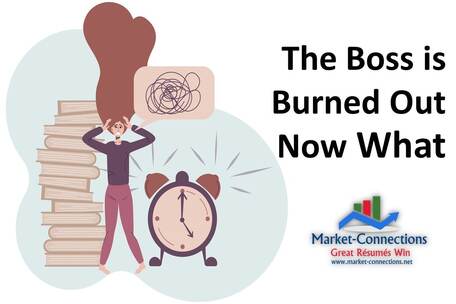
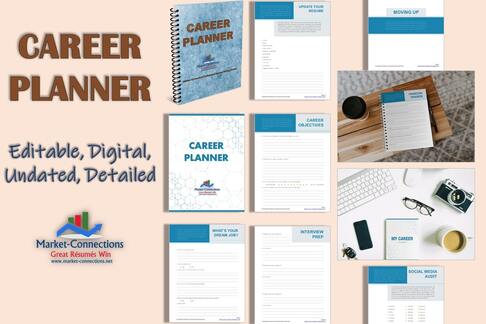
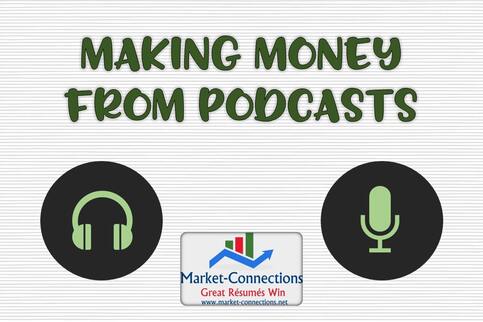
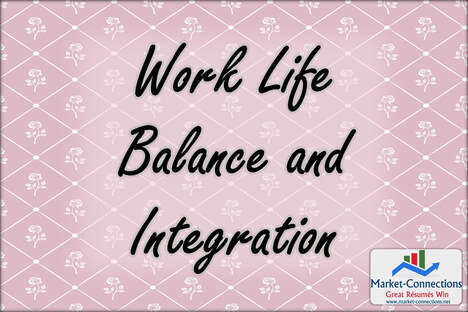

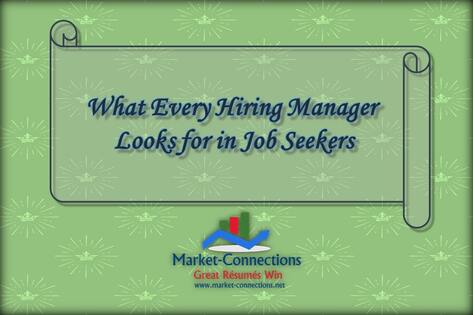
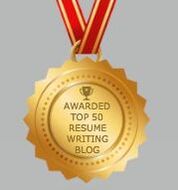

 RSS Feed
RSS Feed



